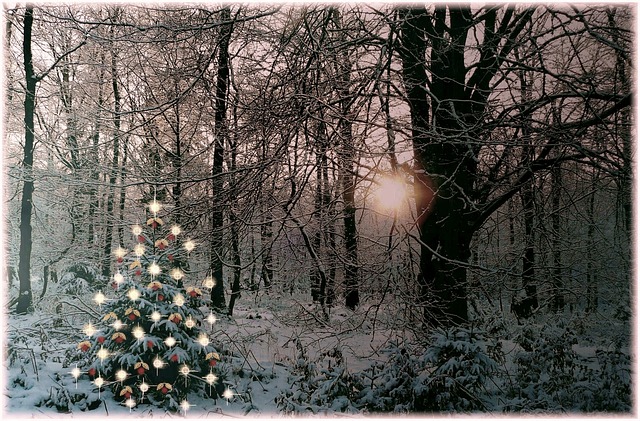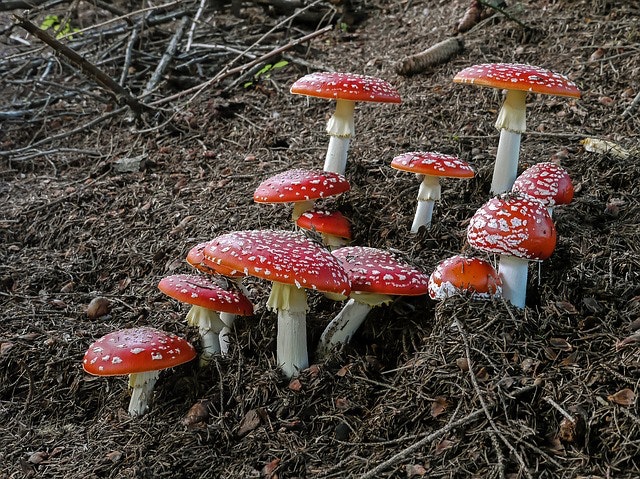(For the “Daily Audio” of Thom reading this article, available only to paid subscribers, check the “Daily Audio” tab on HartmannReport.com.)
It’s Christmas Eve, a connection to some of the most ancient of all known northern European shamanic traditions. Like people living in the north for millennia, we continue to embrace them with regional, national, and religious tweaks.
It occurs during the week of the shortest day and longest night of the year in the northern hemisphere, when ancient holy men and women lit “yule logs” to push back the darkness and bring back the light of summer.
As Henry Bourne wrote in 1725:
“For as both December and January were called Guili or Yule, upon Account of the Sun’s Returning, and the Increase of the Days; so, I am apt to believe, the Log has had the Name of the Yule-Log, from its being burnt as an Emblem of the returning Sun, and the Increase of its Light and Heat.”
When Louise and I lived in Germany, Herr Mueller led us up a mountainside deep into the Franconian forest on this night where they had covered a pine tree with candles: we sang carols and he read aloud a bible verse. He later told me that in ancient times the shamans would set the tallest tree afire to re-ignite the sun and bring back longer days.

For millennia across the European arctic circle around the North Pole, from Scandinavia through Siberia, indigenous shamans sought out red-and-white mushrooms (amanita muscaria) and dried them in socks hanging from their fireplaces.

The mushrooms contain a powerful psychedelic, Muscimol, but are also laced with compounds poisonous to humans. Reindeer, however, love to eat these mushrooms and, when they do, they behave oddly, as if their names were Dancer and Prancer.
Their reindeer livers metabolize and thus neutralize the compounds that poison humans, but leave the psychedelic Muscimol largely untouched. Thus, reindeer urine on fresh snow is powerfully psychedelic.
Arctic shamans, around this time of the year, would leave batches of dried amanita mushrooms out in the snow for the hungry reindeer, then follow them as they danced and played, gathering the fresh yellow snow to make into a holiday grog.
This was also the time of the year that the father of gods in Norse religion, the long-white-bearded Odin, would ride his eight-legged horse Sleipnir (“sleigh-near”), bringing good people small gifts made by “Odin’s men” in Asgard, his arctic retreat. The story seems to have morphed as it traveled out of Norway from men to elves, and from eight legs to eight reindeer.
Odin controlled the powers of Thunder and Lightning, “Donner” and “Blitzen” in ancient Norse and today’s Germanic and Scandinavian languages.
There’s also an extraordinary goddess connection to this holiday, reindeer, and the Santa story, as Judith Shaw documents here.
The reindeer’s favorite food, the amanita mushrooms, look like the shamans dressed, red with white trim and white spots. They’re rotund: you could call them “chubby.”
They grow under pine trees because their mycorrhizae or fungal filaments that extend underground transport minerals from the soil into the roots of the pine trees, who return the favor by transporting carbohydrates from year-round photosynthesis in their needles back down through their roots into the mycorrhizae to nourish the mushrooms.
Amanitas are only found under pine and spruce trees because of this symbiotic relationship that keeps them both healthy. And to this day pine and spruce are pretty much the only trees we use to decorate our homes this time of year.
While Christmas Eve was the darkest of times in the north, it also held the greatest promise.
Shamans and their communities would light their pine trees with candles, put the north star (the axis around which the world revolves) atop their trees, and consume their yellow-snow drinks on the darkest nights.
Thus, could use the powers of spirit and nature to fly into the sky to visit the spirit world and resurrect the longer and warmer days for their people, along with spiritual illumination, healing, and the renewal of life.
Several of our modern religions, including Judaism and Christianity, hold this renewal of life at the core of their winter solstice holy days.
During these short, dark days and long nights let’s remember this ancient knowledge that illumination always follows darkness, and that with love and compassion we will re-light our nation and lives.
Merry Christmas and warmest regards for whatever holidays you and yours may celebrate (or not) during this holy and transformational season.
May all your dreams and good work be realized as our sun’s eternal energy returns to full life in our part of Earth this coming New Year…
Originally posted at The Hartmann Report

